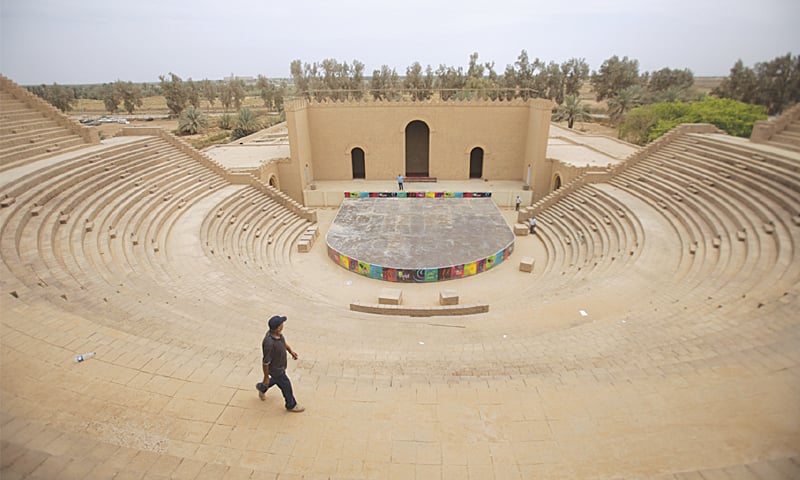BAGHDAD: Unesco’s World Heritage Committee voted on Friday to list the sprawling Mesopotamian metropolis of Babylon as a World Heritage Site after three decades of lobbying efforts by Iraq.
Iraq had been trying since 1983 to have the site — a massive 10-square-kilometre complex of which just 18 per cent has been excavated thus far — recognised by Unesco.
Straddling Iraq’s Euphrates River about 100 kilometres south of Baghdad, the city was the centre of the ancient Babylonian empire more than 4,000 years ago.
“What is the world heritage list without Babylon? How to tell the history of humanity without the earliest of old chapters, Babylon?” said Iraq’s representative to Unesco’s World Heritage Committee ahead of the vote.
The committee met in Azerbaijan’s capital of Baku to consider Babylon and another 34 sites, including in Brazil and Burkina Faso, for the List.
“It fills a gap that was evident on the list and indeed, this is a type of site that we can say this convention was actually designed to protect,” said a Tunisia’s delegate.
After the successful vote, Iraq’s delegation clasped hands and invited all delegates “to visit Babylon, the cradle of civilisation”.
Babylon developed as a walled city of mudbrick temples and towers, known internationally for its hanging gardens, the Tower of Babel, and the Ishtar Gate. Excavation began there in the early 1800s and artefacts were sent abroad, including parts of the Ishtar Gate which remain in museums across Europe.
‘Extremely vulnerable condition’
The site was substantially impacted by new structures built under dictator Saddam Hussein and further damaged by soldiers during the US-led invasion that toppled him in 2003.
Unesco on Friday said the site’s “extremely vulnerable condition” sparked “serious concerns, with many structures in urgent need of conservation and several on the verge of collapse”. But it opted not to designate Babylon as a World Heritage Site in Danger after objections from Iraq, and instead said it would work with local authorities to set a plan of action for conservation.
“Babylon is the largest populated city in ancient history,” said Qahtan al-Abeed, who heads the Basra Antiquities Department and led efforts to get the site listed.
The Unesco designation “will encourage research and development of the site,” and would “be free publicity for tourists,” he added excitedly.
Babylon is one of 7,000 archaeological sites across Iraq, many of which were destroyed by the militant Islamic State (IS) group or ravaged by lucrative artefact smuggling.
Five have been listed by Unesco, including the Arbil citadel in northern Iraq and the southern Mesopotamian marshes. The three others are also on the agency’s “World Heritage in Danger” list and include Hatra, an ancient city in northern Nineweh province damaged by the IS in 2014.
Published in Dawn, July 6th, 2019












































